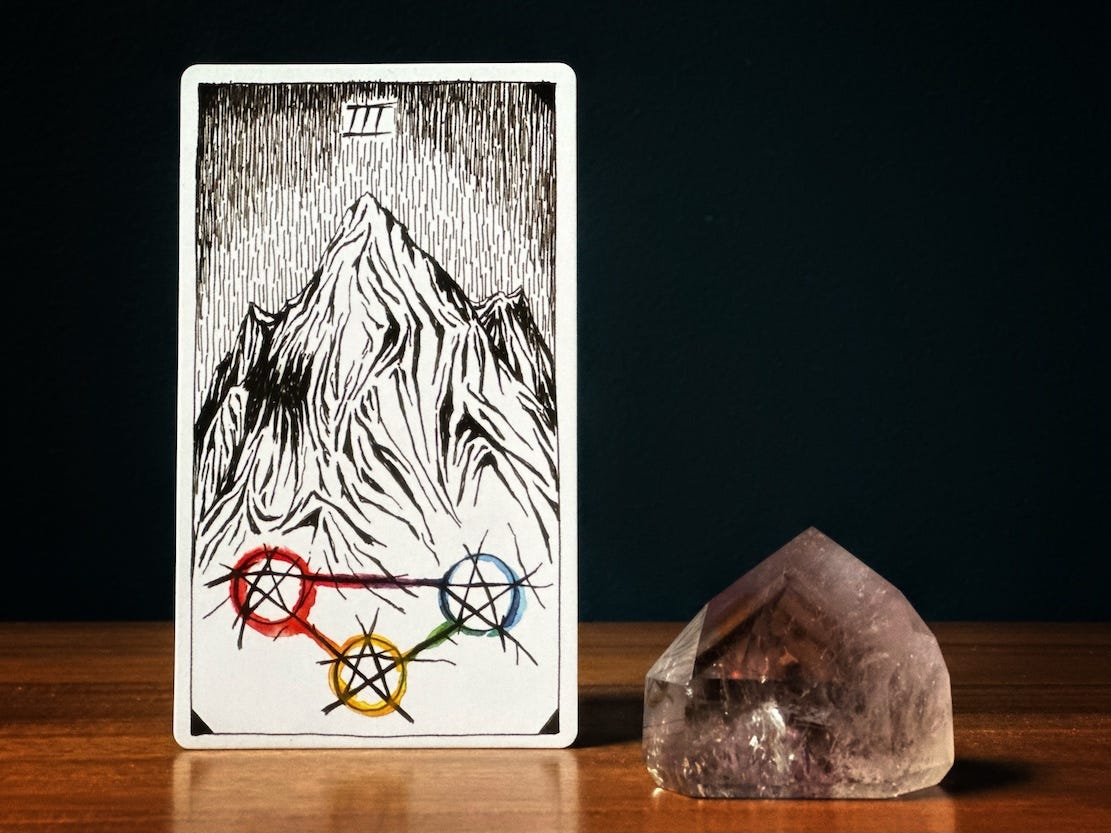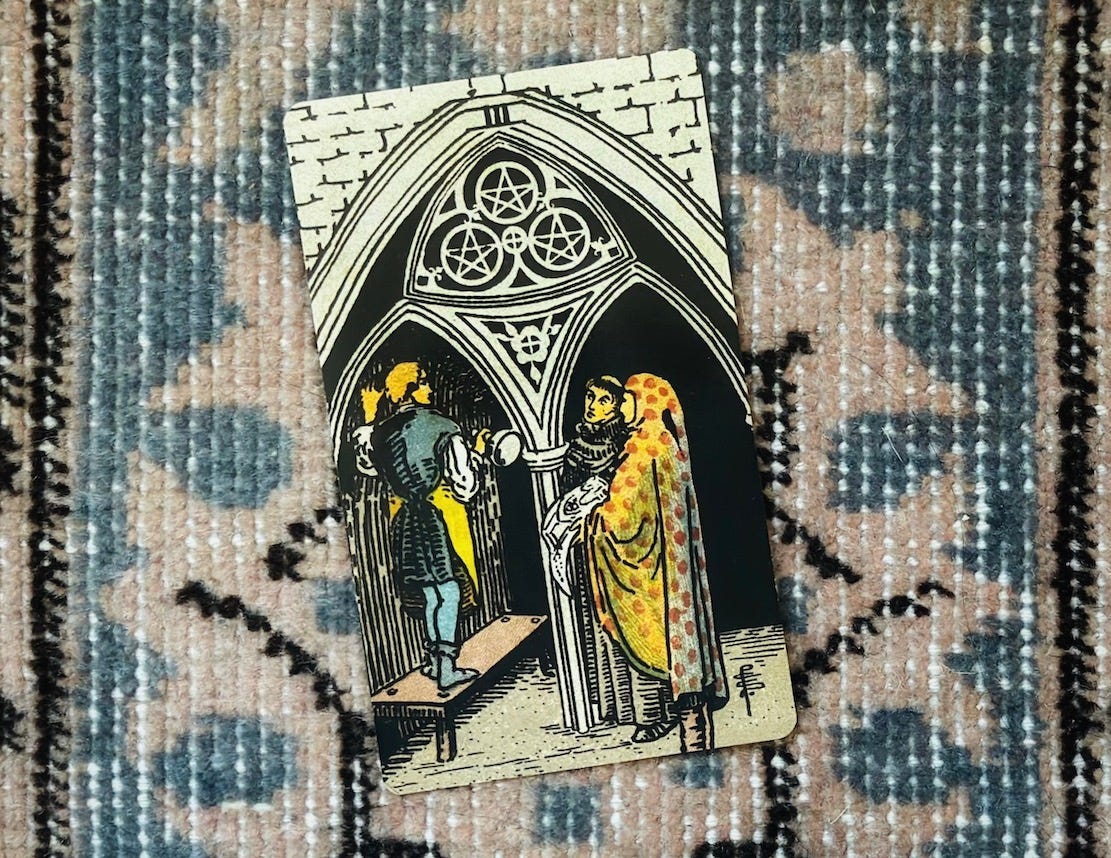My very first job was at the library.
Our dinky township library was a far cry from the likes of the New York Public Library’s marble façade and stately lions. We’re talking a squat, brick structure attached to the local police precinct. It boasted a freshly mowed lawn dotted with brown patches courtesy of neighborhood dogs, and a few spindly, landscaped trees. And yet, like all libraries, it had a certain air of erudition.
The interior was creaky, charming in its dankness. From the moment you crossed the threshold, it enrobed you in that library-book smell, a curious mix of moss and papery vanilla, with a hint of wet dog.
I began working there at age sixteen, a few nights a week and on weekends. It was pleasant enough, though time at work meant I wasn’t manning my computer for my crush to appear on AOL — hours with no chance of the bliss of the “door opening” sound effect when they appeared.
My official title was “library page,” which sounded charmingly medieval, like it might’ve involved a jaunty costume (it did not). My duties consisted of checking patrons in and out, collecting fines, re-shelving books, and edging — ensuring all titles were brought right to the edge of the shelf, for maximum browsability. When it was especially quiet, I’d hide in the stacks, with a book or three to keep me company.
If this sounds wholesome, it was. If it sounds calm, it wasn’t.
The frequent bursts of drama came from my colleagues, Ellen, Dorita, and Mrs. Meeps, three librarians who would’ve put the cast of any sitcom to shame.
Ellen was small, blond, paranoid, and perpetually consuming a Werther’s hard candy. Her great passion was “tidying the periodicals.”
Dorita had a temper that went from 0 to 60 at the drop of a hat. If someone blatantly ignored the rules of the library — by speaking above a whisper or using one of those newfangled cellular telephones — she reverted to shouted obscenities, an irony that was fun to witness.
Mrs. Meeps was a gentle, elegant, newly minted nonagenarian. She dressed to the nines, no matter the weather, lapel adorned with a bejeweled animal brooch from her seemingly boundless collection. You could tell when she was working as soon as you opened the door, by the trail of heady perfume left in her wake.
They moved at different speeds, with wildly different styles, and they constantly bickered with each other. Library days had a way of devolving into a comedy of errors, like something out of I Love Lucy.
There was the time I went to the restroom for all of two minutes and emerged to find Mrs. Meeps calling the police. “Oh, there you are, dear!” she gasped, returning the phone to its cradle. “We were worried sick. I thought you’d been kidnapped.”
Then there was the man, who I’d now consider young but was two decades too old to be after a teenager, that visited every Saturday. He lingered a little too long at the counter, asked too many personal questions, continued to request my phone number despite many polite refusals. I’d invented a fictional boyfriend in the hope it would deter him. It did not.
After weeks of this, the librarians started to moonlight as my personal security team. If we glimpsed his car through the side window, I’d retreat to the staff room until they gave me the all-clear. But sometimes, we didn’t notice until he had already entered the building. Such was the case one particularly hot August day.
“He’s coming!” Ellen hissed. I crouched beneath the counter, where the swamp-colored carpet was littered with butterscotch wrappers Ellen hadn’t managed to get into the trash bin. They crunched conspicuously beneath me, like so many cellophane leaves.
The man did a lap of the premises before making his way to the counter.
“Is Caroline here?”
“Hm?” Ellen pretended not to know who he was talking about.
“The young woman who is usually behind the counter.”
“Oh, she’s not here.” She smiled sweetly, Werther’s crunching between her teeth.
At this point, Mrs. Meeps rounded the corner and spotted me. As she opened her mouth to inquire, Dorita grabbed her by the shoulders, turned her around, and walked her in the other direction.
“Are you sure?” the man pressed on. “She usually works on Saturday.”
“Yes, I’m sure. Is there anything I can help you with?” It was less of an offer than a challenge.
He lingered for a moment before taking his cue. As he made his way around the building to the parking lot, Dorita stalked to the emergency exit, which only opened from the inside. She leaned out just as he reached his car.
“Stay away from her, fucker!” she shouted, loud enough that everyone in the building turned to stare. She shook her fist in the air for good measure and slammed the door behind her.
“What?” she said, catching Ellen’s disapproving look. “We can’t keep doing this every week.”
And that was that.
*
For much of my life, I saw libraries as bastions of knowledge. Keepers of archives, temples of information, guardians of stories. And while this is no doubt true, I now appreciate them as something simpler but no less profound: space. A place for gathering, for seeking, for safety.
Space — the gaps between words, the pause between breaths, the stretches between our beings where we come together — is a resource in short supply.
Now more than ever, it can feel like there is no space, a constant assault of screens and thoughts and sound. One thought blurs into the next, one alert followed by another. And while there is something undeniably wonderful about information at our fingertips and expanded webs of connection, it comes at the cost of the gaps, the spaces, the wondering. When we are always connected, how much do we truly connect?
When I worked at the library, two computers — swollen plastic blocks, like massive glowing Legos — sat in the middle of the room. They were the main attraction, which patrons could reserve in 15-minute increments to research their most pressing inquiries — Mapquest directions, termites, Jennifer Aniston. How quaint this now seems. How purposeful.
When everything and everyone is constantly available, nothing is special. Without space, we lose track of the shape of things. We lose track of the way, and the why that inspired it in the first place.
I hadn’t thought of that library in years, had nearly forgotten its musty smell and rolling carts and threadbare carpet. But its impression will never leave me.
Being subsumed by shelves full of voices has a wildly different effect than the shouts from a virtual chasm. They line up. They beckon. They wait their turn. The stacks were the OG rabbit holes, without marketing or targeting or trolls.
Days at the library yawned and stretched. They crawled at the pace of dial-up, one excruciating pixel at a time. They offered a place for connection — with people, and with voices. They gave us the space to think.
Library days contained the antidote to so much of what ails us. And they still do.
Willard Scott said, “Librarians have always been among the most thoughtful and helpful people. They are teachers without a classroom.” Like the best teachers, what they impart goes well beyond a syllabus. If we’re lucky, we learn.
Card of the Week
Here is this week’s card for the collective, as well as some thoughts to carry into the days ahead. As always, this reading is not meant to be predictive, but rather as a path to reflection. Please take whatever may be helpful and leave the rest.

When the world feels overwhelming, it can help to remember that we aren’t in it alone.
The Three of Pentacles sees that metaphorical mountain before us and reminds us that the way to tackle the seemingly insurmountable is often to divide and conquer — together.
In some interpretations, the three pentacles are said to symbolize that timeless trifecta of mind, heart, and action. In other words, we must first get ourselves aligned, so we can pursue what resonates within us. No matter what is unfolding around us, we can access inner harmony.
How do we do this? First, we clarify where we wish to give our energy — and where we don’t. We get clear on our strengths, priorities, and commitments.
This week’s message is also about the power of small things — steps, efforts, changes, habits — to add up over time. There is no need to absorb the whole at the outset; big things are tackled step by step, day by day.
In this classic image, three figures work together to build, or renovate, a cathedral. They each bring their unique strengths, talents, and areas of expertise. They are unified by a shared goal, joining forces to make it happen.
You don’t need to do — or be — everything.
Collaboration begets a wonderful alchemy of spirit, where individual contributions meld to form something that could never have existed otherwise. Even for those who are lone wolves in their approach, or who may have been scarred by past collaborations gone awry, there is something to be found in the realm of togetherness.
This card encourages us to remain open to the ideas of others, and to speak our own thoughts and dreams into existence. Creativity and innovation thrive in an environment of safety and receptivity.
The collective is composed of individuals, banding together. When we join one another, we make something beautiful, something we couldn’t make on our own.
This week’s message encourages us to offer our gifts to the world in whatever way we can. No act or effort is too small.
What can we bring to this day? How can we help another? How can we help ourselves? How can we offer the talent, knowledge, and experience that only we can bring?
Whether we are looking to build a cathedral, a community, or a new world order, the answer is the same. We start small. We do our part. We join together.
As always, thank you for reading. x









I'm a librarian and I can't thank you enough for this beautiful post.
Thank God for Dorita!!! I love her. This was hilarious and I could read a whole book on your adventures at the library 💗